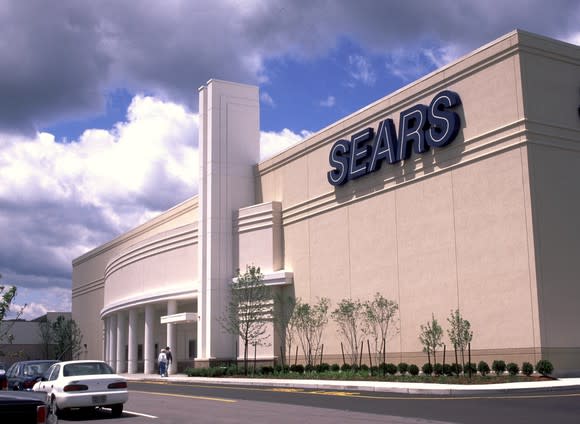4 Big Brands That May Not Be Around Much Longer
It has been a rough few years for retail. Toys R Us became the latest major retailer to close all of its stores, joining one-time giants like Circuit City, Linens 'n Things, Borders Books & Music, Radio Shack, Circuit City, Sharper Image, Bon-Ton, and a few others in failure.
Things aren't going to get any better in 2019, with a number of brands clinging tenuously to existence. This is generally blamed on the so-called retail apocalypse -- the idea that a move to digital is killing brick-and-mortar chains. In reality, it's more complicated than that. Yes, digital sales have been steadily rising, but that has not been a problem for retailers that have adjusted accordingly to an omnichannel model.
A number of brands on this list simply have not done that. That puts their futures, at least in their current formats (since dead brand like Toys R Us and Sharper Image still exist as licensing plays) in serious jeopardy. Following are the big retail brands not likely to survive 2019.

Sears may not make it out of 2018. Image source: Sears.
1. Sears
You can't make a list like this without talking about Sears (NASDAQOTH: SHLDQ). The long-struggling retailer filed for bankruptcy protection heading into the 2018 holiday season, and it may not emerge from Chapter 11. The company does have a buyout offer from its Chairman, Eddie Lampert, and it has a separate offer for its home services business from Ace Hardware and Centerbridge Partners.
It may be a better deal for debtholders to liquidate the company. Even if that does not happen, the surviving chain will be a lot smaller and will still face the same declining customer base and eroding brand it has for years.
2. Payless
The discount shoe company survived a bankruptcy filing in 2018. That filing helped the chain get a little smaller, but it can't change the reality that consumers are increasingly willing to buy shoes (and clothing) online. The company has not made any sort of digital transformation and its mall-heavy portfolio is likely going to be hurt by other failing retailers drawing less traffic to malls.
3. J.C. Penney
Sears' decline has not benefited J.C. Penney (NYSE: JCP) in the way many expected it would. The department store has shown signs that a turnaround might take hold, but things went south in the third quarter, when same-store sales dropped by 5.4%. That's a bad sign after the first two quarters showed tiny (0.2% and 0.3%, respectively) increases.
J.C. Penney's challenge is winning customers back with a type of store that has been in steady decline. The retailer has made lots of changes to its stores and its merchandise, and so far, none have proven the answer. It's possible the retailer serves a customer who simply no longer exists in the number needed to support it.
4. Barnes & Noble
Barnes & Noble (NYSE: BKS) has been in trouble for a long time; sales have steadily slipped as more sales move online. The chain has tried to diversify its offerings by adding toys and collectibles to its traditional mix of books and magazines. It has also held a lot more events in recent years as a way to entice people into its stores.
Not much has worked, and overall sales as well as same-store sales have been moving in the wrong direction. The chain has tested adding full-service restaurants and alcohol to its locations, but so far, it hasn't seen improvement.
It's not just these four
These may be the highest-profile potential 2019 bankruptcies/disappearances, but they aren't the only companies in trouble. A number of other retailers face make-or-break years as the nature of retail continues to change.
These brands aren't dead yet (though Sears is on the brink), and any of the four could either limp its way through another year, or actually turn things around. History suggests that's not likely, but until a retailer closes its doors for good, there's always a chance that executives will figure out a path to success.
More From The Motley Fool
Daniel B. Kline has no position in any of the stocks mentioned. The Motley Fool has no position in any of the stocks mentioned. The Motley Fool has a disclosure policy.
